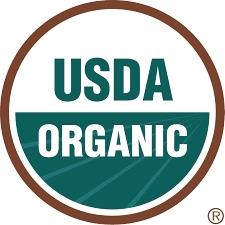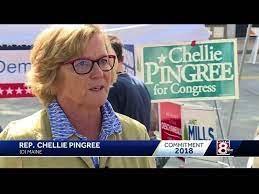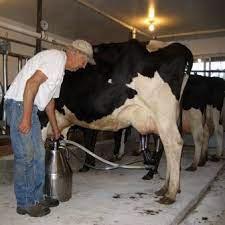 Representatives and Senators from Maine, California and Wisconsin have called on the USDA to provide additional support for dairy farmers producing organic milk. Funding is required as producers face environmental and financial challenges. In the letter to the USDA signed by Rep. Chellie Pingree (D-ME) the legislators urged that $83 million in unspent funds should be made available through the Organic Dairy Marketing Assistance Program (ODMAP).
Representatives and Senators from Maine, California and Wisconsin have called on the USDA to provide additional support for dairy farmers producing organic milk. Funding is required as producers face environmental and financial challenges. In the letter to the USDA signed by Rep. Chellie Pingree (D-ME) the legislators urged that $83 million in unspent funds should be made available through the Organic Dairy Marketing Assistance Program (ODMAP).

The letter included “We must support the small family farms that are the foundation of the organic dairy industry and many of our rural economies.” The letter added, “Whether it is updating the calculations for the program payment rate, initiating a sign-up for another year’s projected future marketing cost or some other mechanism to improve coverage results, the remaining funds dedicated for ODMAP should be distributed promptly.”
In 2022, USDA made available $104 million to organic dairy operations to maintain operations. It is questioned whether public funds should be used to support what appears to be a non-viable industry. It is evident that the cost of organic feed and other requirements to comply with the Certified Organic Program detract from attaining positive margins. This is a reflection of the pricing structure for organic dairy products given demand for the organic seal in competition with conventional milk and plant-based substitutes. If organic dairy farmers cannot make a profit they should revert to conventional dairy production or develop a suitable business model that does not require public support. There is no nutritional or health benefit from organic milk over conventional milk and accordingly taxpayer funds should not be used to support a component of production that has a self-imposed cost burden.

Producers of organic eggs have never requested support despite high prices for non-GMO feed and mandated outside access. Although organic eggs have a shelf price considerably higher than conventional cage-free equivalents, there is adequate consumer support to sustain this segment of the industry. According to the December 1, 2023, USDA Cage-Free Report, the flock held for organic production has been fairly constant at 19 million hens for successive quarters. This compares to 106 million hens held for cage-free production other than under the USDA Certified Organic Program. Given a national producing flock of 320 million at present, organic hens represent six percent of the total industry. Production appears to be in balance with demand but with limited scope for expansion. This is due to the cost of production mostly attributed to the non-GMO feed requirement that is devoid of any scientific substantiation and that effectively doubles the cost of production.
Collectively numerous small-scale organic dairy farmers are producing in excess of demand and accordingly there has to be rationalization and a contraction of supply. It is contrary to a free-enterprise economy for an inherently unprofitable and non-essential segment of livestock agriculture to be sustained by taxpayer support. So if USDA Secretary Vilsack disburses $83 million to needy organic dairy farmers, how long will it take before the constituents of the legislators concerned renew their Oliver Twist request of “please can I have some more”?